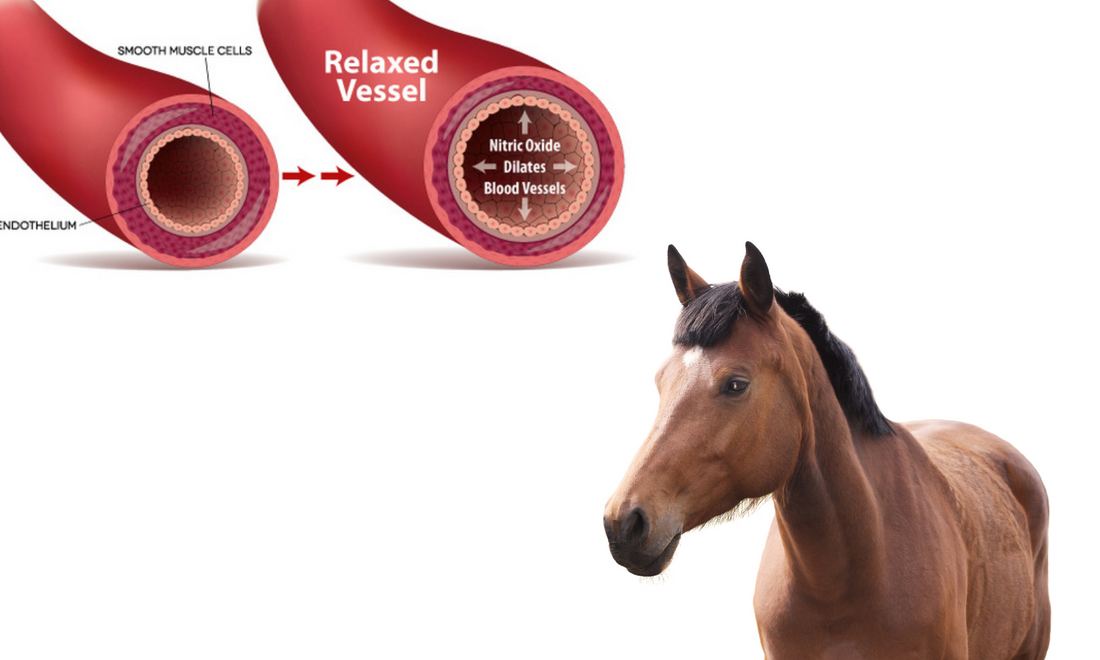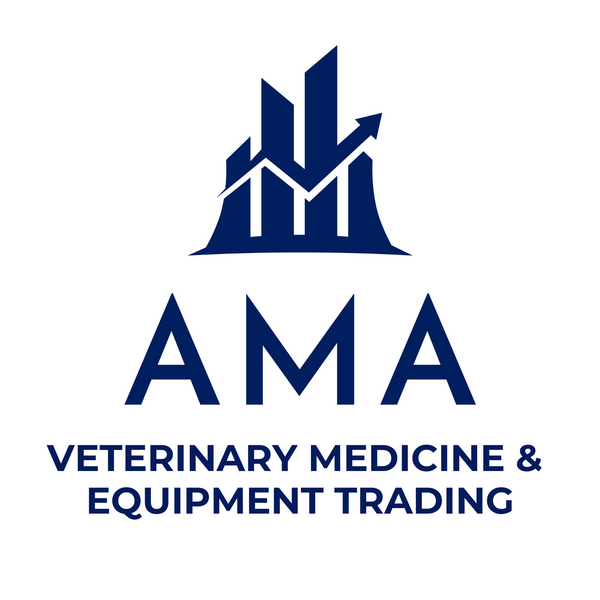Boosting Equine Health: The Vital Role of Nitric Oxide Pathways in Horses

Share
What is Nitric oxide?
Nitric oxide (NO) is a naturally occurring molecule that plays an essential role in various biological processes. In horses, nitric oxide pathways significantly influence vascular function, immune response, kidney function and overall performance. Acting as a potent vasodilator, NO relaxes the smooth muscle in blood vessel walls, allowing for increased blood flow and oxygen delivery to tissues and organs. This mechanism is particularly crucial for performance horses, as adequate oxygen and nutrient supply are required for peak muscular and respiratory efficiency during intense exercise or endurance events. Studies highlight the importance of nitric oxide in enhancing oxygen transport, which supports stamina and minimizes muscle fatigue in working horses (Clanton et al., 2013).
Reducing inflammation and enhancing performance
Increased nitric oxide production has also been shown to enhance immune function and reduce inflammation. Nitric oxide has a key role in immune modulation, activating macrophages and other immune cells to effectively respond to infections and injuries. For horses susceptible to respiratory and inflammatory conditions, such as heaves (equine asthma) or joint inflammation, increased NO levels can help mitigate symptoms and speed up recovery by promoting proper blood circulation and immune activation. Research conducted on equine inflammation management suggests that maintaining optimal nitric oxide levels may help manage chronic inflammatory conditions, reducing reliance on anti-inflammatory drugs (Piccione et al., 2019).
During high-intensity exercise, such as racing, horses require efficient oxygen transport and rapid removal of metabolic waste to sustain muscle function. Studies have shown that NO plays a critical role in promoting vascular relaxation, which supports optimal blood circulation, nutrient delivery, and waste clearance during exertion (Clanton et al., 2013). Additionally, NO influences muscle contractility, which helps racehorses maintain speed and power over longer distances (Peck et al., 2020). Supplementing with NO precursors like L-arginine has demonstrated improved recovery times and stamina in performance horses, making it a valuable component in enhancing racehorse performance (Rodeheaver et al., 2019).
Maintaining gastrointestinal and kidney health
In terms of kidney function, nitric oxide plays a critical role in renal blood flow and filtration. The kidneys rely on proper blood circulation to filter waste products efficiently and maintain fluid and electrolyte balance, which are essential for horses, especially those undergoing intense exercise or training. NO dilates the blood vessels in the kidneys, improving blood flow and thus enhancing the filtration rate. This action helps the kidneys regulate blood pressure and prevent damage associated with high-pressure states, which is particularly important for performance horses prone to dehydration and electrolyte imbalances.
NO plays a significant role in maintaining gastrointestinal and kidney health in horses through its effects on blood flow regulation, cellular signaling, and anti-inflammatory actions. In the gastrointestinal (GI) tract, NO is essential for smooth muscle function and mucosal defense. It helps modulate motility by relaxing the smooth muscles of the intestines, aiding in the passage of food and reducing the risk of colic—a common and serious condition in horses. Additionally, NO has been shown to enhance the mucosal barrier in the gut, which protects the GI lining from harmful bacteria, pathogens, and acid-related damage, ultimately reducing the likelihood of ulcers and other GI issues.
Supplementation
Given these benefits, supplementing horses with products rich in amino acids is an increasingly popular practice among veterinarians and trainers aiming to optimize equine health and performance. GastroPremier® can boost NO levels to reap the benefits mentioned above. By supporting nitric oxide pathways, horse owners can give their animals a significant edge in terms of health, performance, recovery, and overall quality of life.
References:
- Clanton, C. et al. (2013). The role of nitric oxide in equine exercise physiology. Journal of Equine Veterinary Science.
- Piccione, G. et al. (2019). Inflammatory response and immune modulation in equine asthma and nitric oxide. Veterinary Immunology and Immunopathology.
- Peck, L. et al. (2020). Effects of arginine supplementation on exercise tolerance in aging horses. Equine Veterinary Journal.
- Rodeheaver, D. et al. (2019). Nitric oxide's effect on endurance and recovery in athletic equines. Equine Sports Medicine Review.
